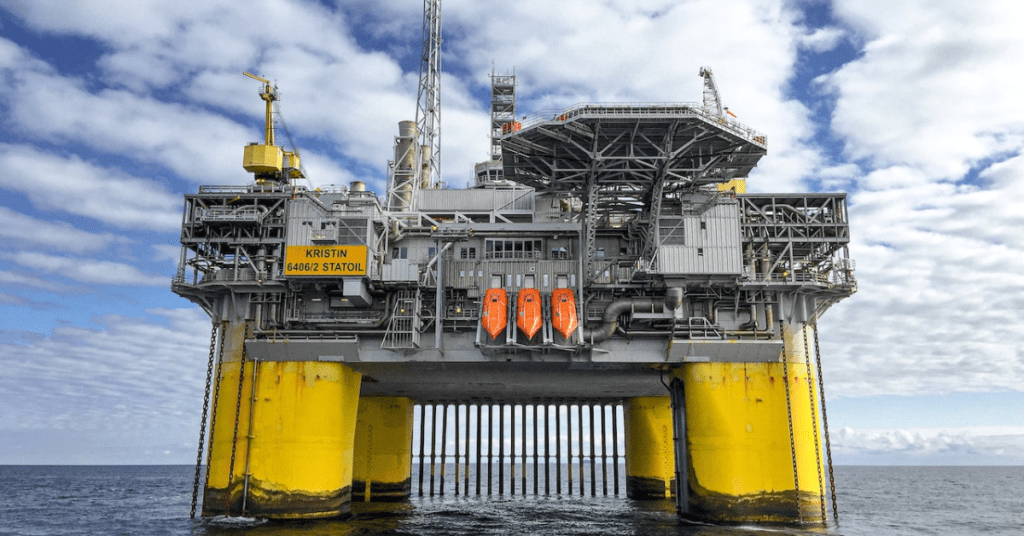The petroleum industry is among the leading enterprises worldwide. While most of the oil production is from the Middle East, other countries like Canada, Russia and the USA have seen a significant increase in oil production in recent years. This has opened many job opportunities for those interested in the oil and gas industry. Many people are making decent incomes from pursuing careers in this industry. According to statistics by PWC, the oil and gas industry supports around 5.6% of total employment in the United States. If you are interested in a job in this field, you may be wondering how many jobs are available in oil & gas production. Today, we will be answering that question.
How Many Jobs Are Available in Oil & Gas Production?
The US is among the leading countries in oil and gas production. A Study by API in 2017 revealed that this industry supported approximately 9.8 million jobs in the US. And this same study says that this industry has sustained many occupations, which has led to an increase of more than 500,000 new employees since 2011.
Gazprom is the largest oil and gas producer worldwide, with approximately 477,600 employees. PetroChina comes in second with 432,000
employees, and Sinopec the third with 384,070 workers. Evidently, this is a large industry with various job opportunities in different sectors.
What Are the Different Sectors in the Oil & Gas Production Industry?
The industry is divided into three segments; upstream, midstream, and downstream. Let’s talk in-depth about these sectors, the employers and the types of jobs you can get.
Upstream
This sector consists of businesses that explore and produce petroleum products. Such companies search for reservoirs with raw materials and then drill them to get the material. The companies are often referred to as exploration and production “E&P.” The segment is considered high-risk and needs high investment, a lot of time to find and drill raw materials, and extensive technology. Note that these companies do not own the drilling equipment and neither do they employ a rig staff. Instead, they hire drilling companies to extract the materials and pay them for their services depending on the time.
Some upstream companies include Devon Energy and Occidental. There are different job types you can get in this sector. For instance, one can become a drilling engineer and help design drilling procedures to minimize cost while maximizing output. Also, you can be an exploration geologist who searches for oil or gas in rock formations. With this career path, you may be forced to live and work outdoors and spend time handling specialized equipment. You can also work as a surveyor or well- testing operator.
Midstream
Businesses in this segment focus on the transportation of oil and gas. Once the raw materials are extracted, these companies then
transport the raw materials to refineries, which are then processed in oil and gas. Most of their work is about shipping, trucking and storing the raw materials.
Strict regulations are outlined for these companies, especially those involving pipeline transmission. For these businesses to succeed, the upstream business must be successful.
Some companies that have established themselves in this sector include Western Gas Partners LP, Teekay Shipping Corp., Kinder Morgan, and Enbridge, among others. If you are interested in working for these companies, you can become a pipeline engineer responsible for creating and building pipes to transport raw materials from one place to another. You can also become a mechanic who performs repairs and maintenance on the pipeline pump station and terminal equipment. Alternatively, one can explore a career in roustabout to support the rig, which includes offloading supplies and other things from cargo vessels.
Downstream
These are gas stations and refineries. Refineries remove impurities from oil and gas and convert them into products that the general public can use, like asphalt, jet fuel, etc. Gas stations are where we fuel at the pump. These businesses benefit from profit margins as they can sell their products for more money than the cost required to acquire crude oil resources.
Some companies in this sector include Valero Energy, Marathon Petroleum and Delek US Holdings. There are different jobs in this segment. For instance, you can become a gas engineer who installs, maintains and repairs gas appliances and equipment. You can do that for industrial organizations or work on small commercial projects. You can also become a sales and business developer who builds and maintains fuel order volume.
What Are the 5 Major Oil Companies?
Most of the largest companies are based in the United States. Remember that in 2022, the USA was declared the top oil producing country. So, it’s no surprise that many companies originate from this area. However, there are also other big names from Saudi Arabia, the UK, China and France. That said, let us look at the major companies of today.
1. Saudi Arabian Oil Co. (Saudi Aramco)


This is the largest company by revenue worldwide. It is also the largest across all industries globally. The company is pretty established, with a revenue of $1.3 trillion and a net income of $330.3 billion. However, it is not traded in the US. It focuses on upstream and downstream and is involved in exploration, refining, marketing, production, petrochemicals, marketing and international shipping. This company controls the second-largest reserves in the world, and its refining operations extend beyond Saudi Arabia.
2. PetroChina


It is located in China and is among the biggest petroleum products producers worldwide. It is a subsidiary of the China National Petroleum Corporation. This company produces natural gas and crude oil and refines petroleum products. Its exploitation basins include Bohai Bay, Ordos, Tarim, etc. Besides China, the company operates in Australia, Indonesia, and Kazakhstan. PetroChina has employed 409,191 workers and has a market cap of $124.3 billion with revenue of $405.3 billion.
3. TotalEnergies
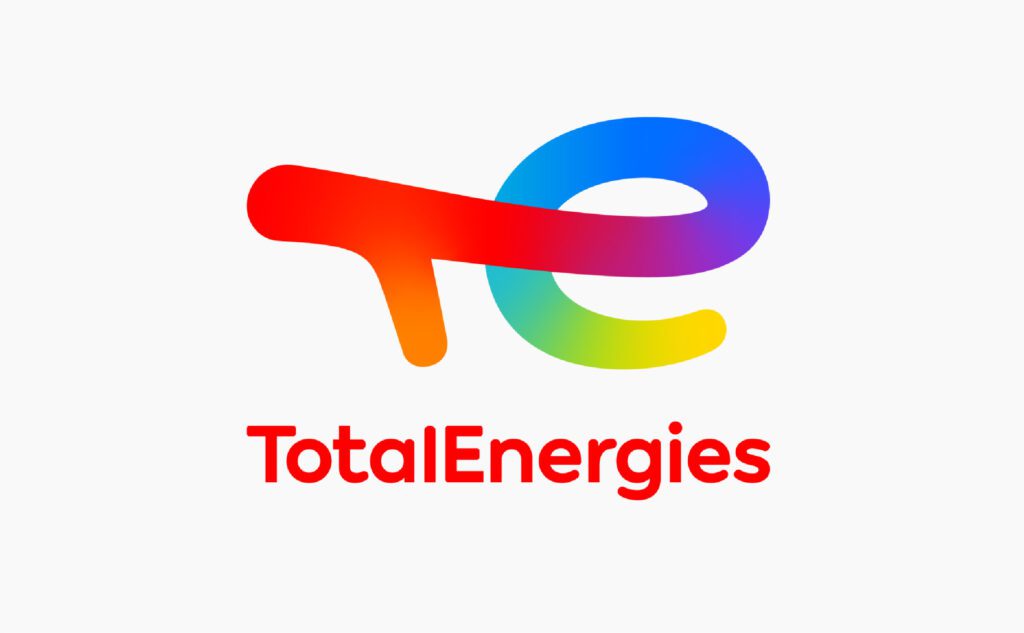

TotalEnergies is an energy and petroleum company that was started in 1924. It is headquartered in France and is considered among the seven supermajor companies globally. Total deals with everything in oil and gas, from production, transportation, refining, marketing and product trading. It also manufactures chemicals on a large scale. TotalEnergies covers all three sectors and supplies its products and services worldwide. It operates in North America, South America, the Middle East, Asia, Africa, and Europe. The company has over 100,000 employees with a market cap of $157.8B.
4. Valero Energy Corporation


Valero Energy is among the largest producers and refiners of petroleum and petroleum products worldwide. It is considered the second large producer of renewable fuels. The company churns approximately 3.2 million barrels daily through refining diesel, premium and conventional gasoline, and ultra-low sulphur, among others.
It has about 15 refiners in the United States, Canada and the UK. The company also owns 15 ethanol plans and features a production capacity of 1.6 billion gallons yearly. It contributes to more than 75% of the total US revenue and ranks 30 in the revenue rank.
5. Gazprom PJSC


This global energy company in Russia explores, produces, transports, stores, processes, and sells gas condensate and oil. The company operates in different segments, including the production of gas, transportation and sales. In general, it explores the three sectors of the industry. Founded in 1905, this is among the largest companies worldwide, with profits of $25.4B. It is mostly owned by the Russian government through the Federal Agency for State Property Management. The other shares are traded publicly.
Is Oil and Gas Production a Good Career Path?
The answer is that it depends. Remember, what makes a promising career depends on an individual. For instance, some look at the paycheck while others consider the working conditions. However, there isn’t one industry that offers everything you desire in a career. For this reason, it is crucial to weigh up the pros and cons before deciding. If the cons outweigh the pros, consider choosing another career. Let’s talk about the pros and cons of working in the oil and gas industry.
Pro: Great Pay
Oil and gas companies are among the most profitable industries. The businesses make a lot of profits which their employees also enjoy. If a high- paying job is what you are looking for, it may be worth venturing into this industry. Also, workers in this industry are compensated well because only a few people want to take these jobs. So, there is more demand and less labor. Often, this is because the work is hard, dirty and dangerous.
Con: Job Instability
The oil & gas production industry is not the most stable. Prices on these commodities are constantly changing. For this reason, it’s hard for companies to foresee the future. These fluctuations often see many people lose their jobs. When the prices are too low, companies have no choice but to lay off some workers. So, you may become jobless suddenly, and finding another job without connections can be challenging.
Pro: Many Skills
Working in this field exposes you to different environments. Thus, you gain experience and acquire skills in different areas. You can use these skills in other sectors. For example, a geologist can use their skills in mining while an engineer can work on a manufacturing or construction project. In short, the skills you learn working in this industry are valuable, and they can help you get opportunities in other sectors.
Con: Challenging Work
As we have mentioned, individuals tend to avoid this industry because of the work involved. It is challenging and requires you to work long hours in difficult and dangerous environments. You may find your job hard to adjust to if you aren’t used to this environment. Again, be prepared to spend a lot of time away from home, which can negatively influence your personal life.
Pro: Adventure
Oil and gas is an exciting career path. Being a fast-paced industry, there are many travelling opportunities. Depending on the job, you can move around your country and even worldwide. Additionally, the industry is very dynamic. Therefore, there are many opportunities to advance and grow your career. You’ll slowly rise to the top if you put in the work and effort.
Con: Health Hazards
A big downside of working in this industry is constant exposure to harmful chemicals and substances. As such, you may suffer from respiratory issues and other problems. Additionally, the industry is not environmentally friendly. So, if you care about the environment, you may be uncomfortable working here. Remember, you’ll directly contribute to the problem.
What Are the Best Jobs in Oil and Gas Production?
The industry has so many jobs to choose from. Here are some that you may find appealing:
Mud Logger
A mudlogger monitors drilling activity. He or she checks and records the wells status as the drillers extract the oil and gas. How long you will work a day depends on the company, but it is usually 12 hours a day. Mudloggers spend two weeks offshore and another two weeks at home. But, sometimes, they may be forced to work for four weeks. The salary range depends on the level of experience. Highly experienced individuals can receive a payment of $65,000 and even more. But on average, the pay ranges from $39,000-47,000.
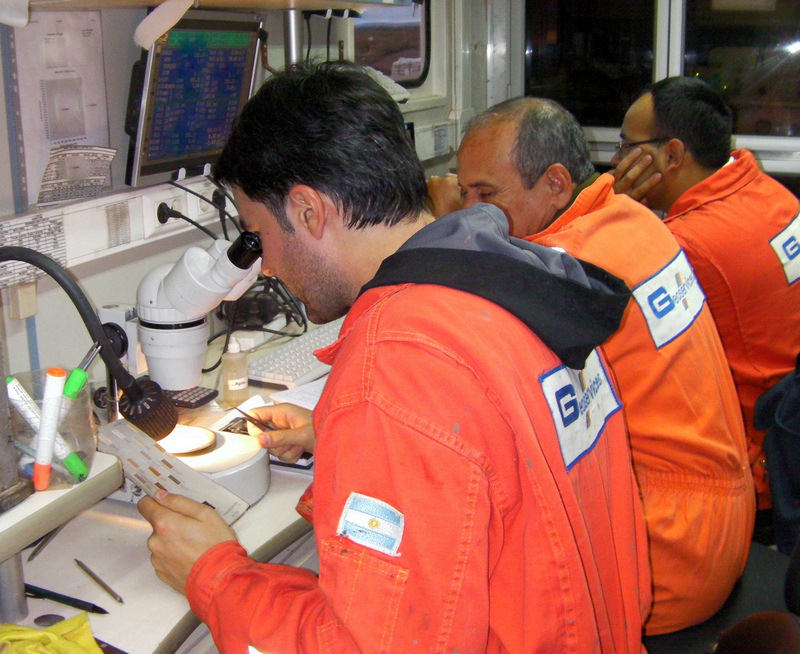

Roustabout
A roustabout is a suitable job for beginners without experience or education in this industry. This individual mainly works on manual labor like cleaning equipment, moving supplies, assisting other workers, etc. It may not seem fancy, but it is a job to start with. Although it’s an entry job, it is well-paying. The average salary is about $44,730, which is more than the minimum wage offered by McDonalds.
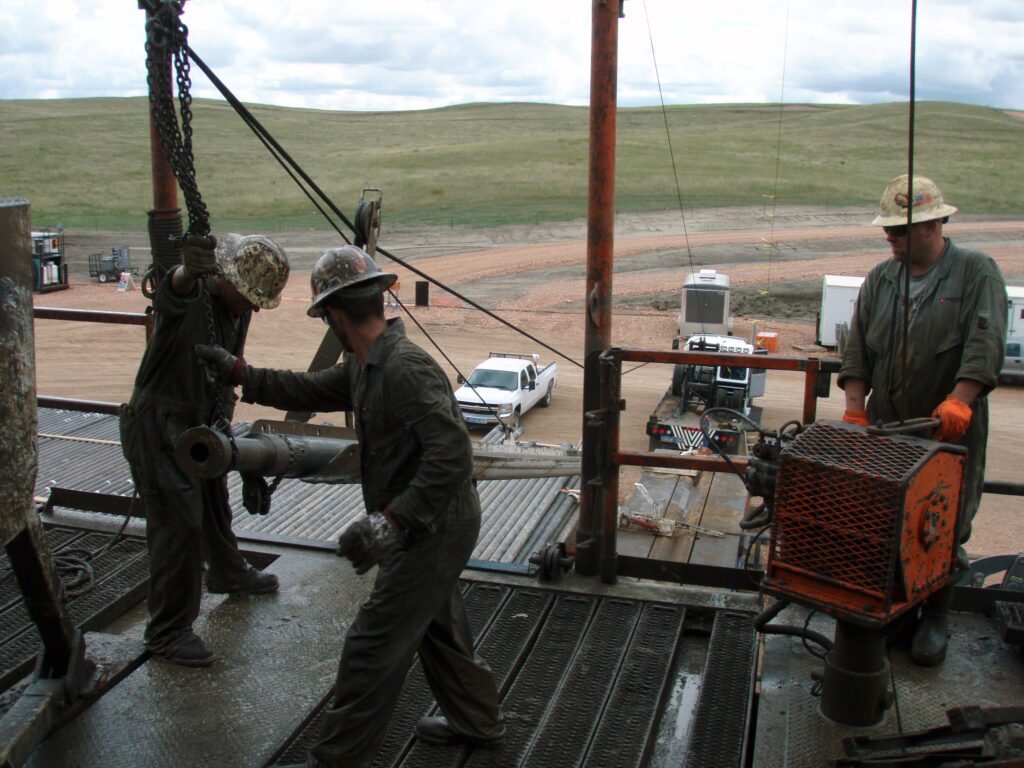

Geologist
The geologist helps in developing wells and deciding where to drill for maximum oil and gas extraction. He or she is involved in all stages of drilling. But, most of their work is done before a new site is developed. If you decide to become a geologist, you will assess if a site is viable and ensure that the drilling process is as smooth as possible. This job involves a lot of working hours, and most projects are overseas. Therefore, it can be suitable for those who want to travel the world while working. The salary ranges from $58,000 to $100,444 on average.
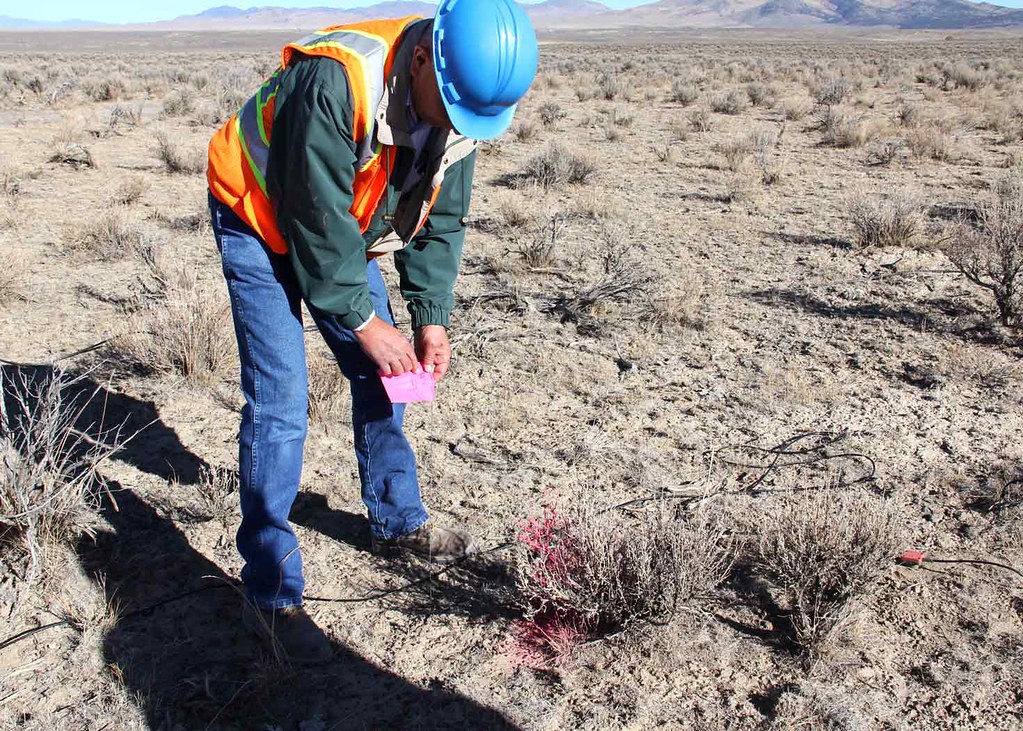

Final Thoughts
Oil & gas production has many different job roles available for people of all backgrounds and education levels. As the world is moving away from fossil fuels and utilizing renewable energy sources, it may be a good idea to look at the careers on offer in the renewable sector. Having said that, we will still require oil & gas for many years to come. Therefore, you can still enjoy a long and rewarding career in this industry. If you feeel that a career in oil & gas production isn’t for you, check out how many jobs are available in the US to find the right career for you.

